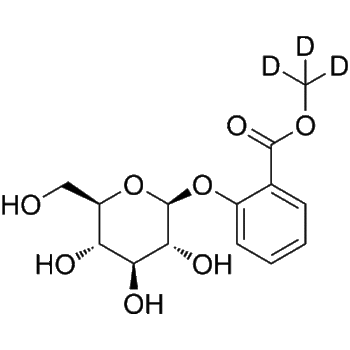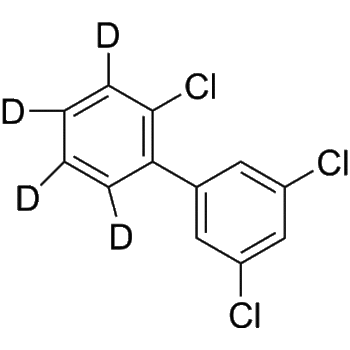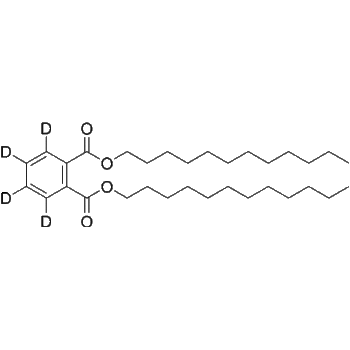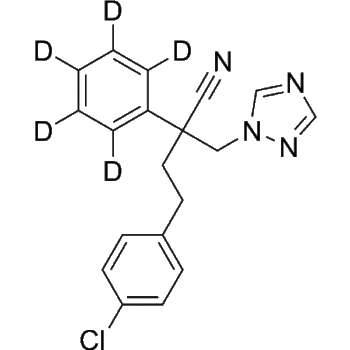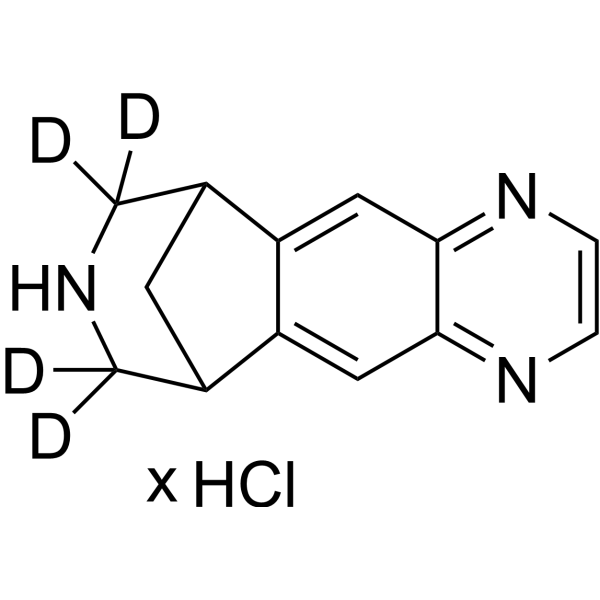
Download Files:
Varenicline-d4 (hydrochloride)
SKU
HY-10019AS1-2500 ug
Category Isotope-Labeled Compounds
Tags Inflammation/Immunology, Isotope-Labeled Compounds, Others
$575
Only 1000 item(s) left in stock.
Products Details
Product Description
– Varenicline-d4 hydrochloride is a deuterium labeled Varenicline (dihydrochloride) (HY-10019A)[1]. Varenicline (CP 526555) dihydrochloride is a potent partial agonist for α4β2 nicotinic acetylcholine receptor (nAChR) with an EC50 value of 2.3 μM. Varenicline dihydrochloride is a full agonist for α3β4 and α7 nAChRs with EC50 values of 55 μM and 18 μM, respectively[2]. Varenicline dihydrochloride is a nicotinic ligand based on the structure of cytosine, and has the potential for smoking cessation treatment[3].
Web ID
– HY-10019AS1
Shipping
– Room temperature
Applications
– COVID-19-immunoregulation
Molecular Formula
– C13H9D4N3.xHCl
References
– [1]Elif Baris, et al. Varenicline Prevents LPS-Induced Inflammatory Response via Nicotinic Acetylcholine Receptors in RAW 264.7 Macrophages. Front Mol Biosci. 2021 Oct 12;8:721533.|[2]Mihalak KB, et al. Varenicline is a partial agonist at alpha4beta2 and a full agonist at alpha7 neuronal nicotinic receptors.Mol Pharmacol. 2006 Sep;70(3):801-5. Epub 2006 Jun 9.|[3]Jin H, et al. Therapeutic concentrations of varenicline in the presence of nicotine increase action potential firing in human adrenal chromaffin cells. J Neurochem. 2017 Jan;140(1):37-52.|[4]Mitsuhisa Koga, et al. Varenicline promotes endothelial cell migration by lowering vascular endothelial-cadherin levels via the activated α7 nicotinic acetylcholine receptor-mitogen activated protein kinase axis. Toxicology. 2017 Sep 1;390:1-9.|[5]Bagdas D, et al. New insights on the effects of varenicline on nicotine reward, withdrawal and hyperalgesia in mice.Neuropharmacology. 2018 Aug;138:72-79.|[6]Russak EM, et al. Impact of Deuterium Substitution on the Pharmacokinetics of Pharmaceuticals. Ann Pharmacother. 2019 Feb;53(2):211-246.
Molecular Weight
– N/A
SMILES
– [2H]C1([2H])C2C3=CC4=NC=CN=C4C=C3C(C2)C([2H])([2H])N1.Cl.[x]
Clinical Information
– No Development Reported
Research Area
– Inflammation/Immunology
Solubility
– 10 mM in DMSO
Target
– Isotope-Labeled Compounds
Pathway
– Others
Product type
– Isotope-Labeled Compounds
Disclaimer: All products are for Research use only unless clearly stated otherwise on the product datasheet. Datasheets provided on the website are drafts for reference purpose only and you are requested to always refer to the hard copy included in the kit for your experimentation. Agdia Products are available for delivery only in Canada.
